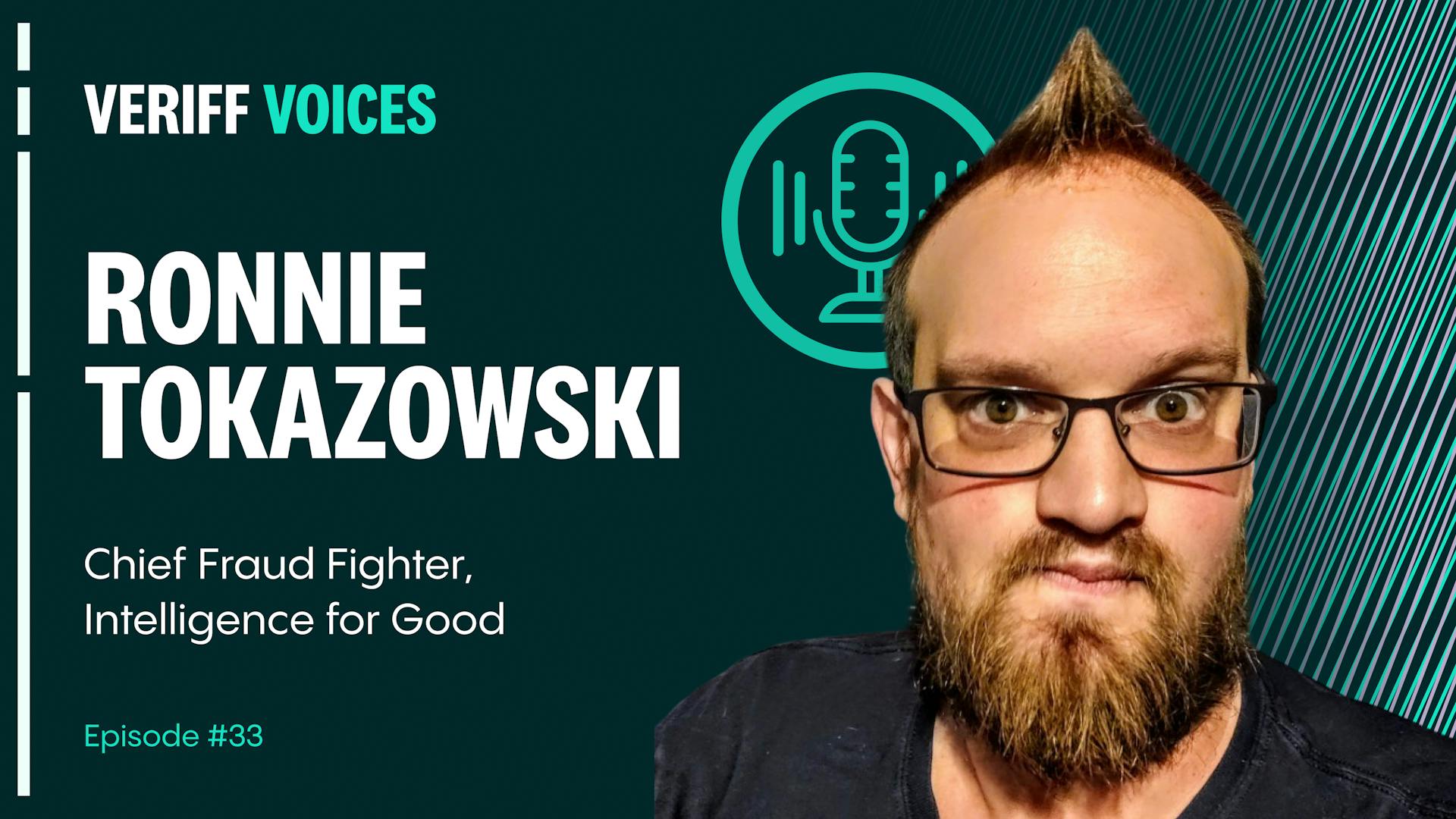Pig butchering scams: the financial and emotional cost
Pig butchering combines the appeal of crypto with the psychological leverage of interpersonal relationships. The consequences can be devastating, not just on a financial level but also on an emotional one – as Ronnie Tokazowski, of nonprofit organization Intelligence for Good, explains.


Chris Hooper
Listen to full conversation with Ronnie now!
As the Chief Fraud Fighter of Intelligence for Good, an organization whose mission is both to fight cybercrime and support its victims, Ronnie Tokazowski has seen a lot of online scams. For him, so-called ‘pig butchering’ is one of the most serious in terms of both the economic and emotional damage it can cause.
What is pig butchering?
The phenomenon known as pig butchering is an adaptation of established romance scams conducted via dating apps or social media. In a traditional romance scam, the fraudster establishes an online relationship with their target over time. Once the scammer has gained their victim’s confidence, they ask for money for something urgent – perhaps for emergency surgery, or because they’re being threatened or unfairly detained.
Pig butchering takes the trust building, interpersonal aspect of a romance scam and pairs it with the financial enticement of an unmissable investment opportunity, usually in crypto. The name alludes to the metaphor of fattening a pig before sending it to be slaughtered.
“They’ll say, ‘hey, I have this really great investment opportunity – you're getting like 40% return on your investment every week! Do you want to invest in that?’” says Ronnie. “They might give you an app to download. They might say, ‘hey, go to this website’, and the website's going to look a hundred percent legit.”
The power of this type of scam is that the victim becomes not just financially but emotionally invested, making it harder psychologically to accept there might be anything amiss.
(Mis)using technology to fatten the pig
Ronnie points to two growing trends that present additional challenges in terms of the detection and prevention of these kinds of scams. One area we’re very familiar with at Veriff is the use of deepfake video technology to obscure an attacker’s true identity.
“We've seen cases where, on the technology side, attackers are very heavily leaning into AI,” says Ronnie. “They've got their phone stacked to record the video from another device,” he explains. “And they'll be talking and what will be happening is the one camera will be capturing their face and then the second camera will be replaying a different face to a victim.”
In this way, fraudsters who have been pretending to be someone else can build trust with a victim by taking the interaction to another level. Meanwhile, criminals are also using technology to improve the quality of their writing – once a relatively easy way to spot suspicious online interactions.
“In the past, it used to be like, hey, poor grammar, don't go and do that,” comments Ronnie. “But a lot of it’s becoming more grammatically correct.”
The financial and emotional impact
One of the reasons the growth of pig butchering is so concerning is that the sums involved can be huge.
“The losses that we're seeing are much higher than other areas of crime,” comments Ronnie. “I was working with one victim who lost 1 .7 million dollars.”
You might think a victim would be foolish to hand over such huge sums, but it’s important to remember that time and effort is the key to success in this type of ‘long con’. Scammers will test the waters with smaller requests and may spend many months and hundreds of interactions building trust with their victim before going for the big payoff. For that reason, it’s not just the financial loss that can be damaging – the psychological and emotional impact can be devastating.
“They're actually really, really hurting people,” says Ronnie. “We have many, many, documented cases of suicide as a result of these types of scams.”
Stopping the slaughter
When it comes to counteracting this kind of fraud, Ronnie sees human ingenuity as the most powerful tool in the fraud fighter’s arsenal.
“You have researchers on our side who are like, ‘hey, what can I do to stop these threats at scale?’ or ‘what can I do to put the biggest hurt on these attackers?’ And when you start getting creative in that way, you're able to start thinking of solutions that your attackers won't be able to account for.”
Ronnie points to the AlphaBay-Hansa sting operation as a good example. AlphaBay was a darknet online marketplace used for the buying and selling of illegal goods and services that was shut down following a coordinated multinational effort by law enforcement. However, it was the next stage of the operation, involving a second marketplace called Hansa, that was truly ingenious.
“People were posting and saying, ‘hey, go over to this other market called Hansa’,” says Ronnie. “But what they didn't know was the Dutch police had access to Hansa. So, they essentially were able to make this honey pot.”
In the subsequent four weeks, over 27,000 illegal transactions occurred on Hansa, which were all logged to be used as evidence in future prosecutions.*
Helping individual victims avoid the butcher’s knife
While Ronnie points to some basics to be wary of when interacting with new people via social media and dating apps, he accepts that deepfakes are making it easier for ‘pig butchers’ to convince their victims.
For those around them, the deception may be far more obvious. However, Ronnie warns against simply wading in with practical advice without considering the psychological and emotional power the scammer has over their victim.
“If someone starts questioning a deep core belief, especially when we're feeling loved, when you threaten that, we're going to react and we're going to get defensive,” says Ronnie. “So, when you're working with that friend and family victim, keep that in mind, be kind and be gentle.”
*‘Operation Bayonet: Inside the Sting That Hijacked an Entire Dark Web Drug Market’. Published by Wired, 18 March 2018.
Explore more
Get the latest from Veriff. Subscribe to our newsletter.
Veriff will only use the information you provide to share blog updates.



